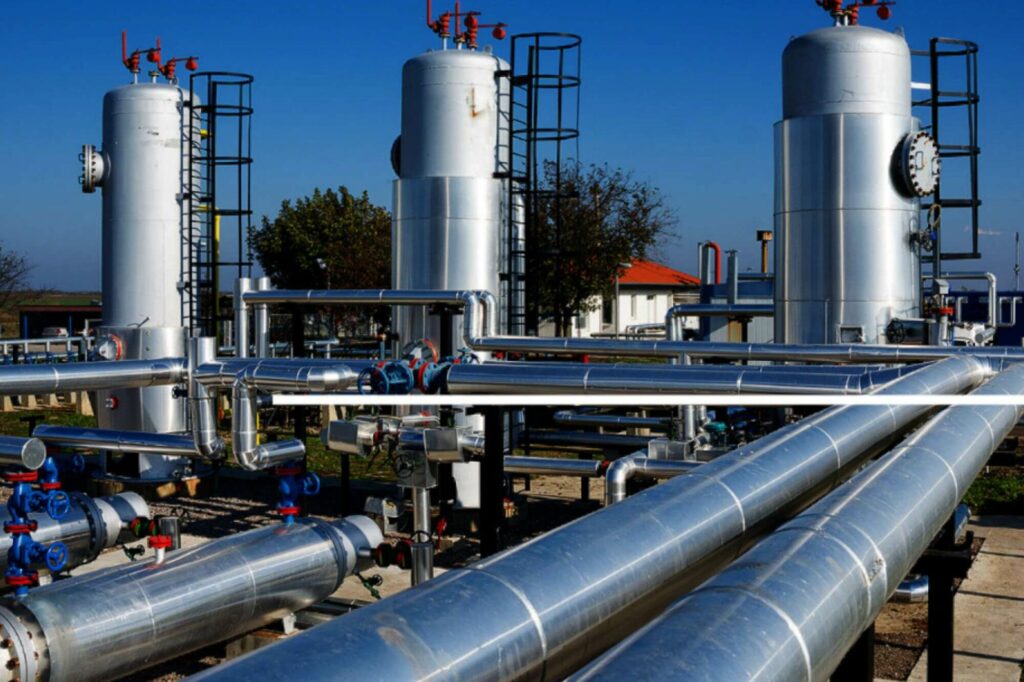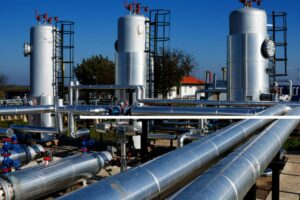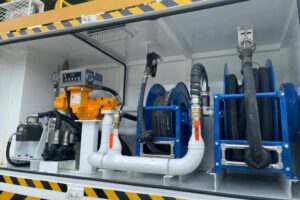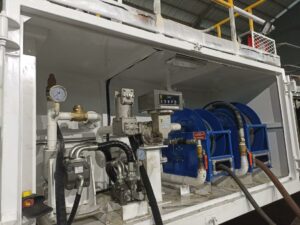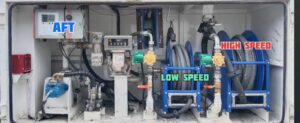Selecting the correct flow meter can be daunting, especially when different industries and liquids require specific types for accurate measurement. In this article, we’ll explore what a flow meter is, and help you find the best type for your industry and liquid needs.
What is a flow meter?
A flow meter is a device used to measure the volume or mass of a fluid passing through a system. These instruments are essential for monitoring and controlling the flow of liquids or gases in various industries such as oil & gas, chemical, water management, and food processing.
Flow meters are critical for accurate measurements, ensuring that businesses maintain operational efficiency and comply with regulations. With many different types on the market, selecting the wrong flow meter can lead to inaccurate readings, increased costs, and potential equipment damage.
Common Types of Flow Meter
Understanding the different types of flow meters is key to selecting the right one for your application. Here are some of the most commonly used flow meter types:
1. Positive Displacement Flow Meter
Best for: Oil & Gas, Chemical Industries
How it works: This meter measures the actual volume of fluid by trapping a fixed volume and then releasing it, providing accurate readings. It’s highly efficient for thick, viscous liquids like crude oil or industrial chemicals.
2. Turbine Flow Meter
Best for: Water Management, HVAC, and Power Plants
How it works: Fluid flow turns a turbine within the meter, and the rate of spin is proportional to the fluid velocity. Turbine flow meters work best with clean, low-viscosity liquids like water and coolant.
3. Coriolis Flow Meter
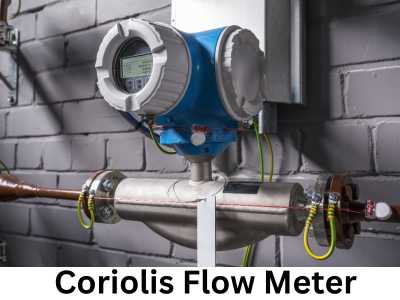
Best for: Food & Beverage, Pharmaceutical, Chemical
How it works: This meter measures the mass flow by using the Coriolis effect, providing incredibly accurate readings. Coriolis meters are ideal for industries requiring precise measurements of both liquid and gas, including high-viscosity liquids like syrup or oil.
4. Electromagnetic Flow Meter
Best for: Wastewater, Mining, and Pulp & Paper
How it works: This flow meter uses a magnetic field to measure the velocity of conductive liquids. It’s an excellent choice for dirty, sludgy, or corrosive fluids like wastewater and slurry.
5. Ultrasonic Flow Meter
Best for: HVAC, Oil & Gas, and Chemical
How it works: Ultrasonic flow meters use sound waves to measure the velocity of fluid. They are perfect for non-invasive measurements of both clean and dirty liquids, particularly in oil pipelines or chemical processes.
Which Flow Meter Type is Best for Your Industry?
Different industries require different flow meters based on the fluid’s properties and operational conditions. Here’s a quick breakdown of the best types for common industries:
- Oil & Gas: Positive displacement, ultrasonic, and Coriolis meters are often the top choice due to their accuracy and ability to handle thick or abrasive liquids.
- Water Treatment: Turbine and electromagnetic flow meters are ideal for their capability to measure both clean and dirty water.
- Food & Beverage: Coriolis and positive displacement meters are preferred due to their precision in measuring high-viscosity liquids like syrups and oils.
- Chemical & Pharmaceutical: Electromagnetic and Coriolis meters are commonly used to ensure accurate measurement of volatile or corrosive chemicals.
Avoid Getting the Wrong Flow Meter – What to Consider
When choosing the right flow meter for your needs, there are a few key factors to consider:
- Fluid Type: Is the liquid clean or dirty? Is it viscous, abrasive, or corrosive?
- Flow Range: What are the minimum and maximum flow rates of the fluid?
- Accuracy: How precise does your measurement need to be?
- Installation Requirements: Do you need an inline meter, or would a clamp-on ultrasonic meter be better?
- Budget: Some flow meters, like Coriolis, are more expensive but provide higher accuracy.
Choosing the correct flow meter is critical to ensuring operational efficiency and accuracy in your business. Consult with a flow meter specialist to determine the best fit for your needs.
Conclusion
Flow meters are essential tools for measuring liquid flow in various industries. By understanding the differences between flow meter types and matching them to your specific liquid and operational requirements, you can avoid costly mistakes and improve your process efficiency. Whether you need a positive displacement meter for heavy crude oil or a turbine meter for clean water, there is a flow meter designed for your application.

